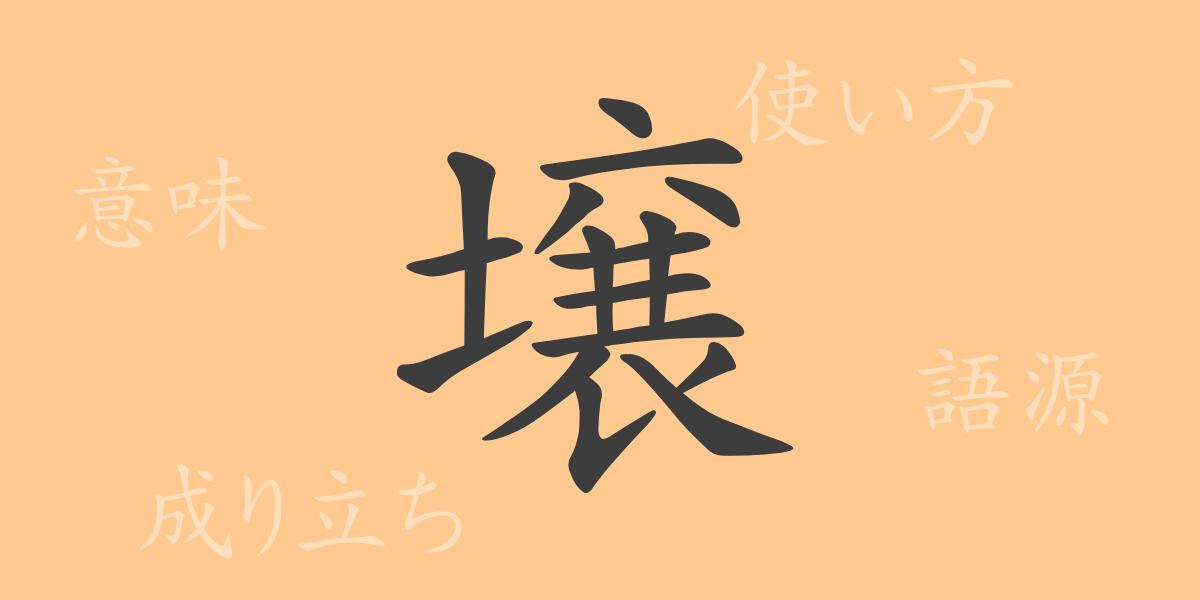The kanji ‘壌’ (じょう), though less commonly seen in daily life, holds profound meanings related to land and soil, embodying the history and culture ingrained in Japanese characters. This article delves into the origins, meanings, and uses of ‘壌’, along with phrases and proverbs that incorporate it, offering a deeper understanding and appreciation of the subtle beauty within each Japanese character.
Origins of 壌 (じょう)
The kanji ‘壌’ combines ‘土’ (soil) with ‘士’ (person), initially symbolizing someone standing on vast land. Originating from ancient China, ‘壌’ depicted the importance of cultivating fertile land, evolving to represent rich soil and expansive territories.
Meaning and Usage of 壌
‘壌’ conveys meanings such as ‘land’, ‘soil’, and ‘territory’. It is primarily used to describe the quality of soil or land, often in agricultural contexts. Metaphorically, it can also refer to a nation’s territory.
Readings, Stroke Count, and Radical of 壌
Understanding the structure and pronunciation of ‘壌’ is crucial:
- Readings: On’yomi (おんよみ) ‘ジョウ’, no common kun’yomi (くんよみ).
- Stroke Count: 14 strokes.
- Radical: 土部 (つちへん) – related to soil.
Phrases and Proverbs Using 壌 and Their Meanings
‘壌’ appears in several idioms and phrases that reflect its cultural significance:
- 豊壌 (ほうじょう) – Refers to fertile, rich land.
- 富壌 (ふじょう) – Denotes a wealthy, prosperous land.
- 沃壌 (ようじょう) – Describes land rich in moisture and nutrients.
These terms are primarily used to express the richness and fertility of the land.
Conclusion on 壌
The kanji ‘壌’ has long been used in Japan to describe the qualities of land, reflecting its deep connection to nature and agriculture. Understanding the significance of ‘壌’ helps us appreciate the depth of the Japanese language and the perspectives it offers on the natural world. Each kanji, including ‘壌’, enriches our understanding of Japanese culture and language.

























